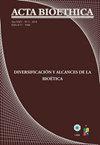生育旅游:这种无国界现象的法律方面
IF 0.3
4区 哲学
引用次数: 1
摘要
生育、生殖或生殖旅游都是指代21世纪增长趋势的新术语,即人们为了接受生育治疗而前往其他国家的运动。因此,这一现象意味着多种法律、生物伦理、社会学等问题,需要国家决策者和在国外寻求此类治疗的人加以考虑。这篇评论文章将试图提供一个更大的图景,重点关注四个代表性欧盟国家的医疗辅助生殖国家法律的特殊性,即德国、奥地利、意大利和法国,并解释一个国家的限制如何促进其他国家的生育旅游业。将以比较的方式描述每个国家的情况,处理有关配子捐赠及其匿名制度,死后生殖,代孕服务和冷冻保存等主题的立法,法规甚至相关的国内判例。此外,还将确定在分析的每个国家谁有权接受生育治疗,以及这些国家如何为这些治疗提供资金。此外,将介绍最受欢迎的非欧盟目的地国家,以及为什么人们更愿意在那里接受生育治疗。最后,这篇综述文章将反映是否确实有机会制定有关生育治疗的强有力的国家、欧洲或国际政策。本文章由计算机程序翻译,如有差异,请以英文原文为准。
Fertility Tourism: The legal side of this phenomenon without borders
Fertility, reproductive or procreative tourism are all new terms which designate a growing trend of the 21st century, namely the movement of people to other countries in order to undergo fertility treatment. Thus, this phenomenon implies multiple legal, bioethical, sociological issues and more, which need to be taken into consideration both by the national policymakers and by the ones seeking for such treatments abroad. This review article will try to offer a bigger picture by focusing on the particularities of the national laws on medical assisted reproduction of four representative EU countries, namely Germany, Austria, Italy and France and on interpreting how the restrictions in one state could boost the fertility tourism industry in other ones. The situation in each country will be depicted in a comparative manner, tackling the legislation, regulations and even relevant domestic jurisprudence on topics such as gamete donation and its anonymity regime, post-mortem reproduction, surrogacy services and cryopreservation. Moreover, it will be determined who is entitled to have fertility treatment in each of the countries subject of the analysis and how do these states fund the procedures. Furthermore, the most popular non-EU countries of destination will be presented and why one would prefer to undergo fertility treatment there. In the end, the review article will reflect if there are indeed real chances of creating strong national,European or international policies regarding fertility treatments.
求助全文
通过发布文献求助,成功后即可免费获取论文全文。
去求助
来源期刊

Acta Bioethica
医学-卫生政策
CiteScore
0.60
自引率
0.00%
发文量
22
审稿时长
1 months
期刊介绍:
Acta Bioethica is a biannual publication by the Interdisciplinary Center for Studies in Bioethics of the University of Chile (ISSN 0717-5906, press edition, y 1726-569-X, electronic edition), which publishes in three languages: Spanish, English and Portuguese.
Indexed in Science Citation Index (SCI), Scopus, Lilacs, SciELO y Latindex, and in database from several Institutions; it constitutes a pluralistic source of perspectives and an important tribune which accepts the contributions of authors compromised with the interdisciplinary study of ethical determinants and consequences of techno scientific research.
 求助内容:
求助内容: 应助结果提醒方式:
应助结果提醒方式:


